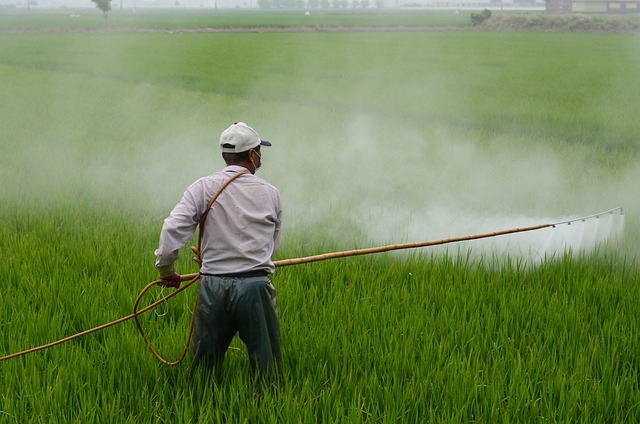PRETAG Initiative
Pesticides Reduction in Tropical Agriculture
Although the negative impacts of pesticide use on human health and the environment are now recognized by more and more actors in society (scientists, public decision-makers, civil society, private companies, etc.), with the corollary of launching initiatives and public policies aimed at reducing their use in the North (including the ECOPHYTO plan in France and the Green Deal policy in Europe), the issue of pesticide reduction in tropical agriculture is still not sufficiently addressed.

Initiatives do exist. If they allow to test new ideas and practices and to initiate a real public-private dialogue within these sectors, the scientific community of Montpellier, expresses today the need to work more together with its partners in the South, to share experiences, tools and methodologies, and to develop an overall strategy aimed at modifying in depth and in a sustainable way the public policies and the practices of the actors of the agricultures in the South
Goals
The objective of the PRETAG project is to document, analyze and define pesticide reduction strategies within a multi-stakeholder framework.
In a first phase of 2 years, the project will capitalize knowledge on the basis of 5 commodities (3 export and 2 local): Banana, Cocoa, Coffee, Rice and vegetable crops, spread over three continents Latin America, Africa and Asia.
14 multidisciplinary research units, involving IRD, the Agro Institute, INRAe, CNRS and the University of Montpellier are involved.
Actions
The project is broken down into 5 parts:
1- Diagnosis of pesticide use:
This first part aims to produce reliable data on pesticide use in the different sectors and contexts studied including information on abusive and obsolete uses. The research teams will then exchange on the methods of survey, collection and quantification and data processing to refine a common methodology.
2- Study of the potential for pesticide reduction
This second part then consists of quantifying the potential for reducing the use of pesticides, i.e., evaluating the gap between practices using pesticides and a set of "good practices" and technical itineraries based on agro-ecological approaches and integrated crop protection. A second objective will be to quantify the impact of pesticide reduction on production costs and yields.
3-Study of bottlenecks and levers related to the reduction of pesticide use
This 3rd part of the project is declined on three complementary levels:
i) macro-institutional level, by characterizing the norms and the public intervention at the national level
ii) sectoral level, by characterizing the specificities of the sectors in the reduction of pesticides
iii) social level, by analyzing the role of academic and professional education in collective capacity building.
4- Supporting multi-stakeholder dialogue in pesticide reduction
The objective of WP4 is to document the different types of existing multi-stakeholder consortia (objectives, functioning, etc.) in the 5 commodity chains, in particular by studying for each stakeholder consortium, their level of involvement in pesticide reduction, the performance indicators they use and finally the type of markets promoting pesticide reduction approaches implemented. In the second part of the study, we will examine the obstacles and opportunities for the development of these consortia as well as the methods of financing their actions.
5- Cross-sectional data analysis to support the development of pesticide reduction strategies.
This last part aims to integrate all the results obtained and analyze them at two levels:
a) overall analysis of biotechnical results related to a global analysis of the results of a biotechnical nature related to data on the use of pesticides (WP1) and the conditions for reducing their use (WP2);
b) global analysis of organizational and political levers and bottlenecks (WP3) and the functioning of multi-stakeholder consortia (WP4).
This last part 5 will invite scientific groups and extended institutional groups to discuss the results in order to define pesticide reduction strategies to be tested and implemented in a future second phase of the PRETAG initiative.
Results

- Project Number2203-001
- Call for project
- Start date :1 September 2022
- Closing date :31 December 2024
- Flagship project :yes
- ResponsableFrançois X. COTE
- francois.cote@cirad.fr
-
Research units in the network
Southern partners (non-exhaustive list): ESA, SADRCI, Université Felix Houphouët-Boigny (Côte d’Ivoire), Université Douala, Université Yaoundé (Cameroon), Ecoland ROyal University of Agriculture, CNRS center Norbert Elias, , coffee producer cooperatives (Costa Rica, Nicaragua), CATIE, NGOs, private partners



